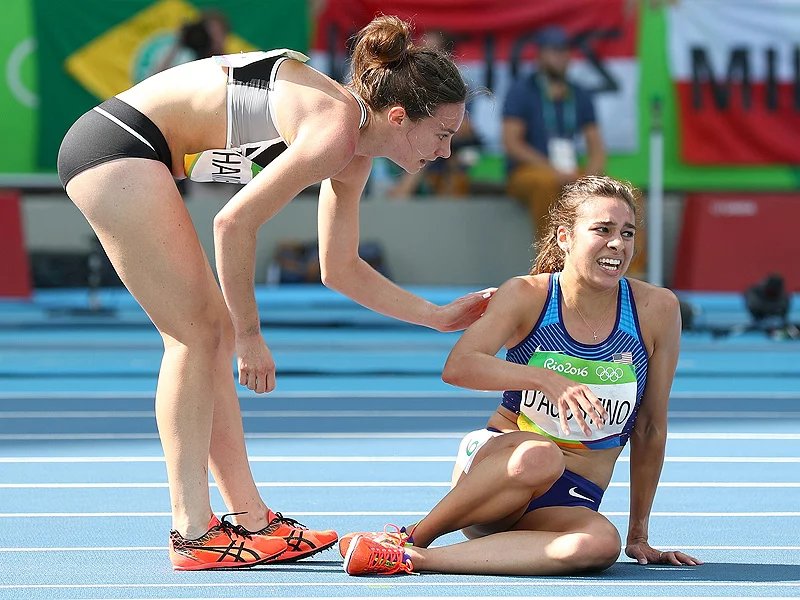
When one of your athletes is injured, they have a team of doctors, athletic trainers, physical therapists, and other medical professionals to get them back on the field. But while they might be physically ready to return to play soon, they’ll struggle to be mentally prepared. This mindset journey is fraught with setbacks, letdowns, and disappointments that can prevent your players from coming back with confidence. In this post, we’ll answer three difficult questions posed by coaches and athletes during our recent recovery from injury webinar.
Injuries can be depressing. Do you have any suggestions on how I can lift my spirits?
One of the challenges that getting hurt presents is that it removes you from the game you love and separates you from your teammates, something that can be amplified during the pandemic. To ensure you’re not isolated and don’t start struggling with anxiety, depression, or other mental health issues, double down on communicating with your teammates and coaches. If you can be with them in person even though you can’t practice, then great. If not, call, text, and message them regularly.
It might be a cliché to say it, but if you want to feel better about your situation, then do something nice for someone else. Find a way to serve your team or your local community in a way that will get your mind off your injury and on to something meaningful. You can extend this to how you talk with other people too. Rather than just going on and on about your own challenges, resolve to ask more questions and see how you can help the other person. You’d also do well to seek out teammates and other athletes who are injured so you can club together, encourage one another, and work toward your comeback as a unit.
Also, make sure you carve out some time each day to do something you find fun, relaxing, or both. When you’re injured, it can start to seem like you don’t deserve such perks because you think you’re not working hard enough to justify them. But when you’re injured, you need to be good to yourself. Whether it’s learning a new hobby, taking a nice warm bath, or rewatching a favorite movie, treat yourself to lift your spirits. And if it’s a group activity, like playing a game with your family or roommates, that’s yet another way to strengthen your relationships.
Since I’ve been hurt, I’ve been lacking motivation. How can I get my drive back?
When you’re injured, your goals are on hold indefinitely, so it’s natural to feel like you’re lacking direction. However, the extra time that being hurt gives you will allow you to refocus on who or what motivates you to be your best. As author Simon Sinek puts it, you need to ask yourself the question “What is your why?” Once you identify a deeper, singular sense of purpose, you’ll be able to pour more fuel on your motivation fire and set your sights on coming back stronger than ever.
You also need to learn to love your comeback more than you hate the setback. Your recovery is your new sport until you’ve healed, so embrace the challenge with the same level of dedication and commitment you usually bring to training and competition. Even if your return-to-play timeline is long, try to break it into chunks and resolve to get one day better every single day. Also, look at other areas that you might have neglected and see how you can improve in them. Maybe it’s eating better, sleeping more, or addressing mobility issues that’ve held you back. By coming up with a checklist of such items, prioritizing them, and working your way down the list, you’ll have a renewed sense of purpose when you get back to full fitness.
I got hurt in a collision with another player last year and am still struggling with my confidence and fear of reinjury. How can I get past this mentally?
Your body is hardwired to protect itself, so it’s natural that since you’ve got hurt you’ve shied away from full contact. But you need to put things in perspective and realize that the chance of being injured again in the same way is very small. You’ve probably had hundreds or even thousands of collisions in your sport and only got hurt once.
It can be easy to catastrophize the worst possible outcome of contact with an opponent. To counteract this, visualize standing strong as you take the hit and still getting a pass or shot off. Do this before every practice and game. If you find it hard to put yourself in the picture, start by imagining one of your favorite players in the situation. Then progress to watching yourself from the sideline and, eventually, to seeing the contact through your own eyes.
To rebuild your confidence in full-contact drills and games, it would also help to remember past situations in which you came through contact and executed a play successfully. Write several of these on a note card, and as you look at it daily, remind yourself that because you’ve done it before, you can do it again. There is no separation between the physical and psychological elements of sports performance, so getting stronger and more powerful in the weight room and faster on the field will translate into going into collisions with greater confidence. And you can make your mind more resilient by committing as little as three minutes a day to building skills like mental toughness.
Want to Help Your Athletes Bounce Back Mentally from Injury?
The Champion’s Mind course contains an entire module on injury recovery mindset that will take your players from the moment they get hurt to when they’re cleared to return to play. It also includes tools, techniques, and tips on self-talk, confidence, and other mental skills that will set your athletes up for success in sports, the classroom, and life.
Want to get Champion’s Mind for all your athletes? Tell us a bit about your team. You can also check out our coach-specific web page.
Preview the Champion’s Mind Course
Whether you’re an athlete or a coach, you can preview the first two modules of the course by downloading the free version of the Champion’s Mind app for your iPhone or Android device.

